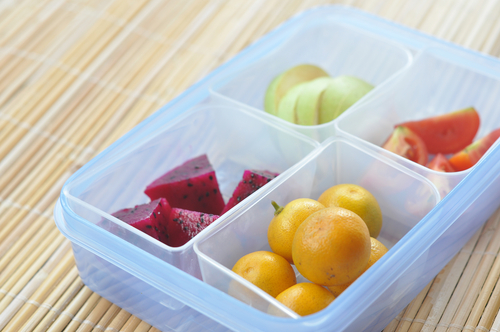Commonly used plastic products house chemicals that could be linked to health issues in children and teens. New research points out that two chemicals found in everyday products such as plastic wrap could play a part in causing high blood pressure, among other problems, in kids.
According to an article by Fox News, these chemicals are diisononyl phthalate (DINP) and diisodecyl phthalate (DIDP). They are used in soap, plastic wrap, food containers and cosmetics. Ironically, they have been used in place of another chemical that was thought to be harmful to health.
“Our research adds to growing concerns that environmental chemicals might be independent contributors to insulin resistance, elevated blood pressure and other metabolic disorders,” study author Dr. Leonardo Trasande, a professor at NYU Langone Medical Center, said in a statement.
For the study, published in the journal Hypertension, 1,329 children and teens (aged 8 to 19) were reviewed. Their blood pressure and the levels of DINP and DIDP in their urine were measured. Results showed that, on average, for every 10-fold increase in the levels of the two chemicals, blood pressure in these children was approximately one point higher. According to the researchers, although this increase is small, it is considered significant at the population level.
A previous study by the same researchers analyzing the link between these chemicals and the risk of insulin resistance in children was published in May this year in the Journal of Clinical Endocrinology and Metabolism. In it, 356 adolescents aged 12 to 19 were observed to see what role the chemicals played with regards to the risk of insulin resistance, which can lead to type 2 diabetes.
The children with higher concentrations of these chemicals in their urine were more likely to have an increased risk of insulin resistance. One in three of the teens (33%) with the highest DINP levels had insulin resistance. In comparison, one in four of the teens (25%) with the lowest levels of the chemical in their urine had insulin resistance.
Trasande said that these chemicals could change the expression of genes that are important for lipid and carbohydrate metabolism, which may play a part in blood pressure regulation and insulin resistance.
In order to help prevent the risks associated with exposure to these chemicals, Trasande recommends that individuals not microwave food in plastic containers or covered with plastic wrap. Washing plastic food containers by hand is better than using a dishwasher, as a dishwasher could increase the chances of plasticizers leaching into food later.
Share your thoughts, leave a comment below. Please like FamiLife’s page on Facebook so that you get all our articles and others may find us.

Photo: Shutterstock
